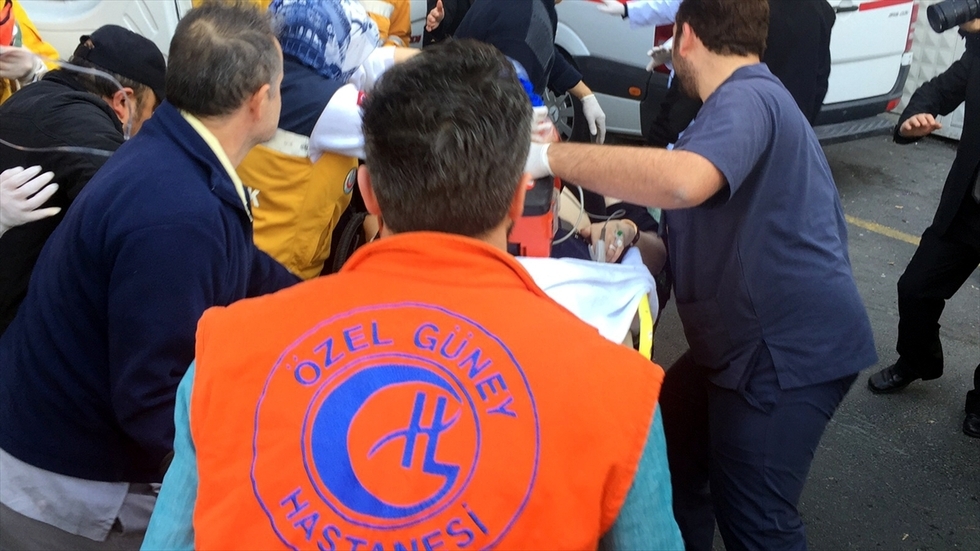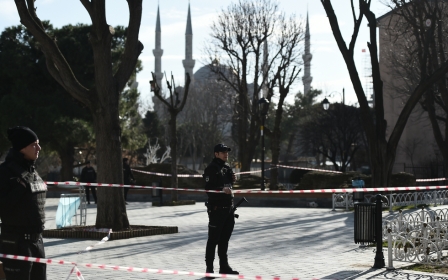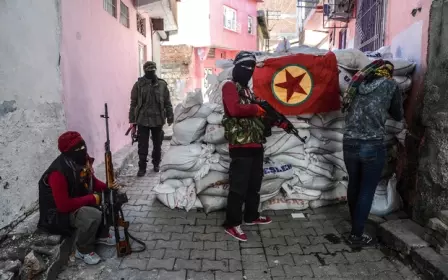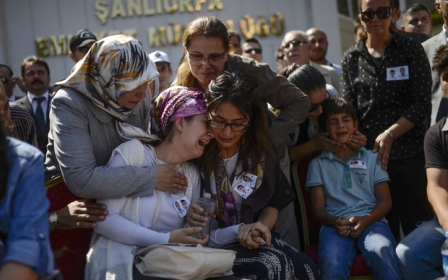Turkey suffers another blow to its morale

The explosion which killed at least 10 people, nine of them Germans, in Sultanahmet Square, the heart of the Turkish tourism industry, on the morning of 12 January is yet another sickening body blow to Turkey’s already low morale. Though horrific, it is just the latest in a series.
Immediate comparisons spring to mind with the attacks at Suruc on 20 July which killed 34 people and the one which saw 102 people die in Ankara on 16 October, but there has been a bloody trail of bombings in Turkey since the Reyhanli bombing, close to the Syrian border, which killed 51 people on 16 May 2013. Turks frequently comment these days that their once relatively sheltered and generally secure country is becoming increasingly like the rest of the Middle East in terms of violence.
As with the previous bombings, a news ban was immediately ordered by the government on reporting this latest blast, though much of the Turkish media have continued to carry the news.
What the previous bombings – most of them apparently the work of ISIS – have in common (apart from the news bans) is that they all seem to have involved serious lapses in security: three of the bombings were carried out by members of a single cell of ISIS from an eastern Anatolian town who had not been picked up by the police. There has been no public explanation to date about why this oversight occurred.
An attack in the centre of tourist Istanbul – only a few hundred metres away from the place where another suicide bomber detonated herself almost exactly a year ago – also suggests further lapses. In the 1990s when the threat of terrorism against tourists first appeared in Turkey, unobtrusive but effective security measures were put in place by the then government and worked. The threat is much greater today but terrorists now seem to find it easier to slip through the net.
Turkey’s tourism industry is already in the doldrums as a result of the steady flow of unpalatable or alarming news out of the country over the last two years. Tourists arriving in Istanbul these days may find hotels which would be packed out in normal times, more or less empty and their staff long-faced. Any possible link between the industry’s decline and recent policies and events appears to be a taboo topic as far public discussion is concerned. So too is the idea that the rise in terrorism could be the product of political polarisation.
At the time of writing this, the identity and precise motives of the bomber can only be guessed at. Speaking shortly after the attacks, Numan Kurtulmus, deputy prime minister, revealed that the bomber, a man, was a Syrian national born in 1988 but did not disclose a name or potential affiliation.
There are three main groups who may have planned the bombing: Kurdish militants, the DHKP/C, a hardline Marxist guerrilla survival from the 1960s and 1970s, and ISIS. Although very different in outlook, to the Turkish authorities, they appear much the same. “Turkey is the biggest and first target of the terrorist groups because we fight against them without distinguishing their names. For us, PKK, Daesh, DHKP-C or YPG (People's Protection Units) and many others are all the same," President Erdogan said on Tuesday.
Nevertheless after the attacks, Turkish officials were cited by Reuters saying that they thought ISIS was responsible, though the evidence on which this suggestion is based is not very clear.
ISIS’s targets in Turkey have usually been Kurdish and Turkish secular leftists. If ISIS turns out to be the source of the attacks, this will mark an ominous new turn for Turkey, since grassroots support for hardline radicalism seems to be growing and it is only in the last year that the Turkish authorities have begun to search and arrest suspected ISIS followers.
Even now it seems that ISIS counts as a lower priority threat than what is known to Turkish officialdom as FETO - the Fethullah Gulen Terrorist Organisation – and to its members as "the Cemaat" or congregation. This is a non-violent though deeply secretive Sufi brotherhood based on the east coast of the United States where it seems to be on good terms with the American authorities.
Catching up in the battle against ISIS will be difficult, not only because it is belated but also because the government is fighting terrorism on other fronts.
Though fingers are being pointed at ISIS, Turkey’s militant Kurdish movement was the first possible culprit coming to the minds of many Turks on Tuesday. In the last three months, Ankara has been locked in a massive combat with the PKK in the cities of southeastern Turkey. Pre-emptive search and arrest operations in mainly Kurdish-speaking towns escalated by stages into massive no-holds barred operations in which 24-hour curfews imposed by local governors (and not discussed in parliament) mushroomed into something like a civil war.
The human cost has been immense: nearly 600 PKK militants killed according to the authorities, 14 soldiers and police dead since the beginning of the year, and according to the Turkish Human Rights Foundation, "at least" 162 civilians killed. Some streets of south-eastern towns now look little different from war-torn Syria.
The PKK - which says it is fighting not for Kurdish independence but for a joint Kurdish-Turkish revolution, though it is clearly almost entirely Kurdish - has to date targeted central and western Turkey. But, with the Kurdish-speaking heartlands virtually flattened, fears have been expressed that Kurdish terrorism could switch to Turkey's metropolitan cities.
On the night of 23 December, TAK (the Kurdistan Freedom Falcons) a little-known ultra-violent splinter group, launched a mortar attack on Istanbul’s second airport, hitting three planes and killing a maintenance worker. This was seen by some as a warning of possible reprisals for the war in the southeast, especially when TAK claimed responsibility a few days later.
The reported Syrian background of Wednesday’s bomber does not necessarily point away from TAK: its presumed leader, Bahoz Erdal, is himself a Syrian Kurd.
While Turkish tourism is generally safe and will doubtless remain so, for ordinary Turks it looks as if a Pandora's Box of troubles has been unleashed on the country.
- David Barchard has worked in Turkey as a journalist, consultant, and university teacher. He writes regularly on Turkish society, politics, and history, and is currently finishing a book on the Ottoman Empire in the 19th century.
The views expressed in this article belong to the author and do not necessarily reflect the editorial policy of Middle East Eye.
Photo: A wounded woman is taken to hospital after an explosion at Istanbul’s Sultanahmet tourist district on 12 January, 2016. Turkish police have sealed off central Istanbul square in historic Sultanahmet district after the explosion was heard. Ambulances raced to the scene in the minutes after the explosion (AA).
New MEE newsletter: Jerusalem Dispatch
Sign up to get the latest insights and analysis on Israel-Palestine, alongside Turkey Unpacked and other MEE newsletters
Middle East Eye delivers independent and unrivalled coverage and analysis of the Middle East, North Africa and beyond. To learn more about republishing this content and the associated fees, please fill out this form. More about MEE can be found here.





